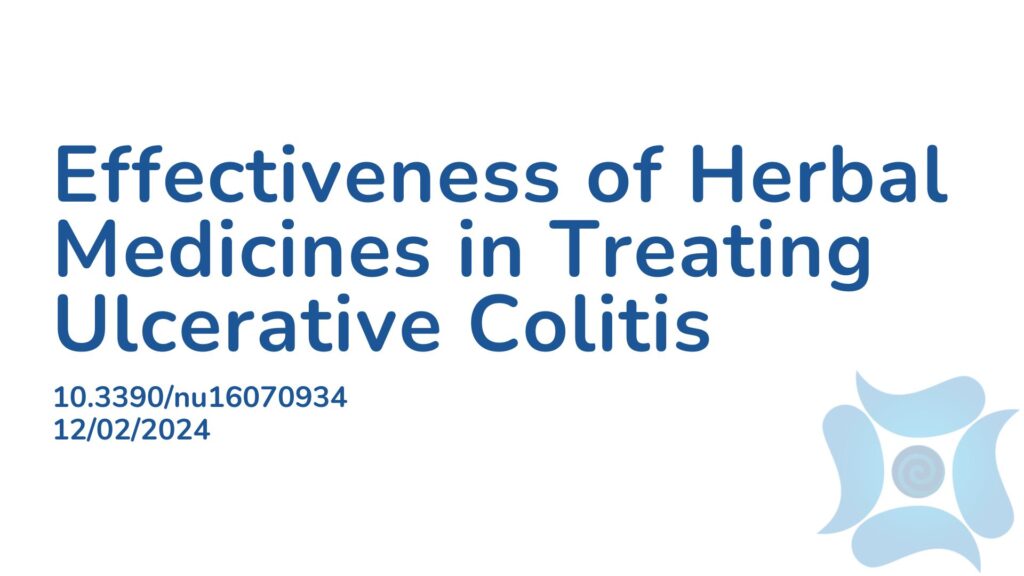Summary:
Ulcerative colitis (UC) is a chronic inflammatory bowel disease characterized by recurring colon inflammation and debilitating symptoms like diarrhea, abdominal pain, and rectal bleeding, It also has an increased risk of colorectal cancer. Its complex origins involve genetic and environmental factors, leading to immune system dysregulation and gut microbe imbalances. Current treatment focuses on managing inflammation with immunosuppressants, yet many patients still struggle with the disease, and these drugs carry risks of severe side effects. Thus, there’s a pressing need for safer and more effective therapies. Many UC patients turn to complementary medicine, including herbal remedies. Despite systematic reviews on this topic, many have primarily covered supplements only. This study aimed to provide a comprehensive review of randomized trials evaluating herbal medicines’ effectiveness in treating UC. The study found that Indigo naturalis showed significant clinical response rates compared to placebo. Curcuma longa demonstrated notable effectiveness in achieving clinical remission and positive disease responses, suggesting its potential as adjunctive therapy for active UC. However, further research, particularly larger-scale trials, is essential before these findings can guide clinical practice.
Abstract:
Herbal medicines are used by patients with IBD despite limited evidence. We present a systematic review and meta-analysis of randomized controlled trials (RCTs) investigating treatment with herbal medicines in active ulcerative colitis (UC). A search query designed by a library informationist was used to identify potential articles for inclusion. Articles were screened and data were extracted by at least two investigators. Outcomes of interest included clinical response, clinical remission, endoscopic response, endoscopic remission, and safety. We identified 28 RCTs for 18 herbs. In pooled analyses, when compared with placebo, clinical response rates were significantly higher for Indigo naturalis (IN) (RR 3.70, 95% CI 1.97–6.95), but not for Curcuma longa (CL) (RR 1.60, 95% CI 0.99–2.58) or Andrographis paniculata (AP) (RR 0.95, 95% CI 0.71–1.26). There was a significantly higher rate of clinical remission for CL (RR 2.58, 95% CI 1.18–5.63), but not for AP (RR 1.31, 95% CI 0.86–2.01). Higher rates of endoscopic response (RR 1.56, 95% CI 1.08–2.26) and remission (RR 19.37, 95% CI 2.71–138.42) were significant for CL. CL has evidence supporting its use as an adjuvant therapy in active UC. Research with larger scale and well-designed RCTs, manufacturing regulations, and education are needed.
Article Publication Date: 12/02/2024
DOI: 10.3390/nu16070934




